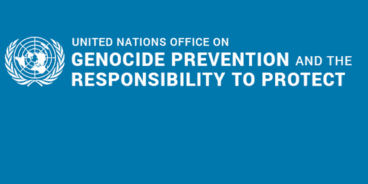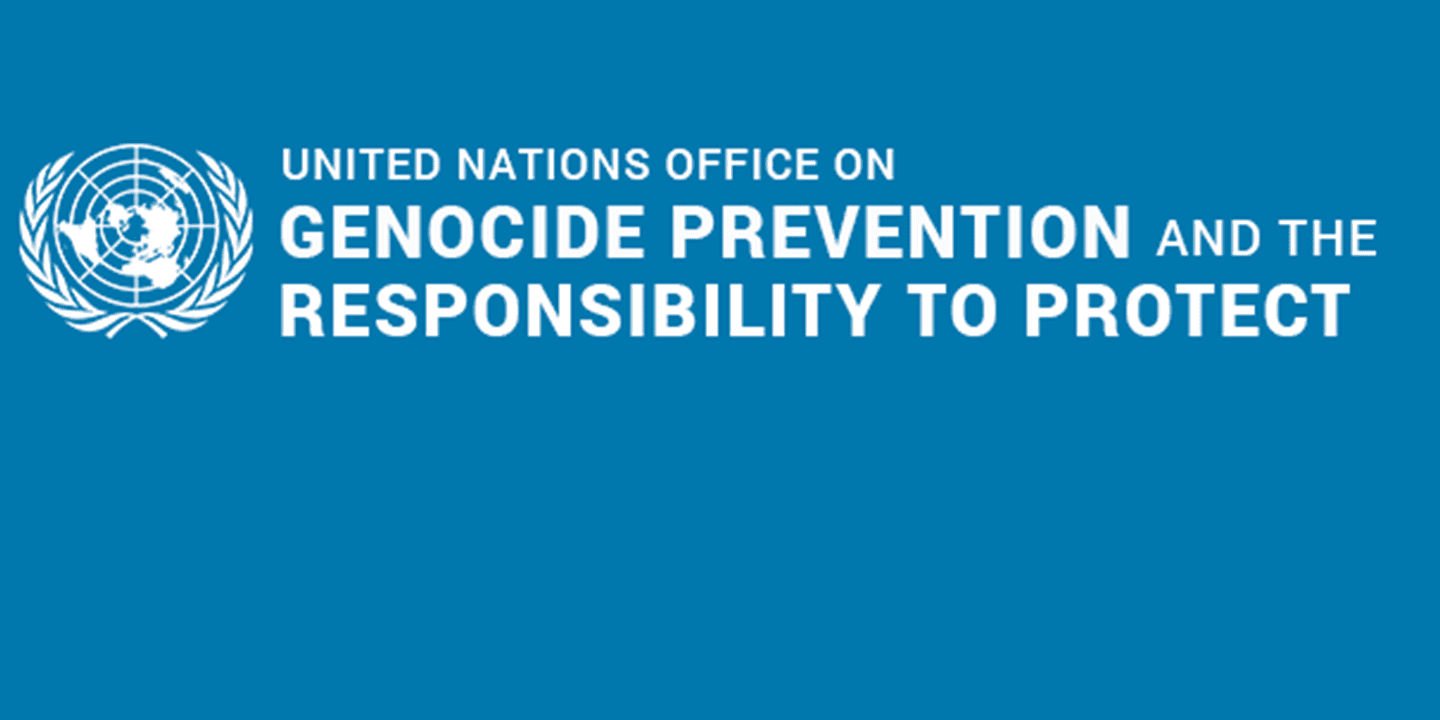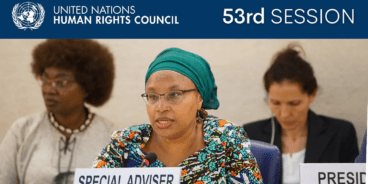

Statement by the UN Special Adviser on the Prevention of Genocide on her official visit to Bangladesh from 11-14 April 2022
The Special Adviser on the Prevention of Genocide, Alice Wairimu Nderitu, undertook her first official visit to Bangladesh from 11-14 April 2022. The primary objective of her visit was to meet with the Rohingya refugees in Cox’s Bazar, Bangladesh. During her visit, she also met with government officials, civil society representatives and religious leaders. The Special Adviser thanks the government of Bangladesh for facilitating her visit.
Special Adviser Wairimu Nderitu expressed her dismay that, almost five years since the 2017 violence against the Rohingya in Rakhine State in Myanmar, which resulted in over 700,000 fleeing to neighbouring Bangladesh, the risk of atrocity crimes, in particular genocide, facing this population in their home country remains unchanged. “The Rohingya continues to be one of the most vulnerable communities in the world. They have suffered decades of discrimination, dehumanization, deprival of their identity and basic rights, including to citizenship. The extreme violence witnessed in 2017 against the Rohingya, in which they were killed, tortured, raped, burnt alive and humiliated, on no other basis than their identity, should never be forgotten. The need for justice and our collective action remains as urgent as ever before.”
In light of this challenge, the Special Adviser welcomed the enduring commitment by the government of Bangladesh to host and protect the Rohingya refugees until they can return to their home country. She stressed that all the Rohingya refugees she engaged with during her visit expressed their wish to return home to Myanmar, but only when they can do so in a safe and dignified manner, with access to equal rights, including to citizenship. The Special Adviser emphasized that for such voluntary and sustainable return to happen, accountability for the crimes committed remains crucial. “Without proper accountability, those who fled as a consequence of the vicious violence inflicted against them have no reason to believe that such violence cannot happen again. Justice is not only essential for addressing the crimes of the past, but also to prevent the commission of future crimes,” said the Special Adviser. She also reiterated in this regard her joint statement of March 2021 with the High Commissioner for Human Rights, Michelle Bachelet, on the importance to ensure accountability for past crimes in Myanmar to deter the most serious international crimes from being committed again. In this vein, in respect to this situation, Special Adviser Wairimu Nderitu acknowledged important accountability efforts taking place at the International Criminal Court, the ongoing case before the International Court of Justice as well as the work being carried out by the investigative mechanism established by the Human Rights Council. The Special Adviser also highlighted the importance of addressing other sources of vulnerability for minority communities in Myanmar, including addressing the root causes of violence in that country and encouraging a fundamental reform of the military.
Special Adviser Wairimu Nderitu also acknowledged the importance of continuing to provide support and protection to the Rohingya refugees while they remain in Bangladesh, including addressing instances of reported increase in negative rhetoric against them.
The Special Adviser reiterated her appreciation to the people of Bangladesh for hosting the Rohingya refugees, providing land for the camps and channelling lifesaving assistance. At the same time, while recognizing the enormous economic, environmental and social impact that hosting such a large number of people has had on the host community, she encouraged authorities in Bangladesh to build upon those efforts in order to equip the Rohingya refugees with the necessary livelihood opportunities, education and skills training while they are in Bangladesh as a crucial step for their sustainable return in the future. “The host community responded to the crisis in 2017 with a commendable sense of urgency, standing in solidarity with those fleeing Myanmar. For both them and for the Rohingya refugees themselves, the continued support of the international community remains essential. This includes efforts to seek solutions to the root causes of the crisis in Myanmar and to ensure continued and adequate assistance to the Rohingya refugees and host communities in Bangladesh. We must not let the situation of the Rohingya become a forgotten crisis. This is the moment to redouble our resolve to them.”
